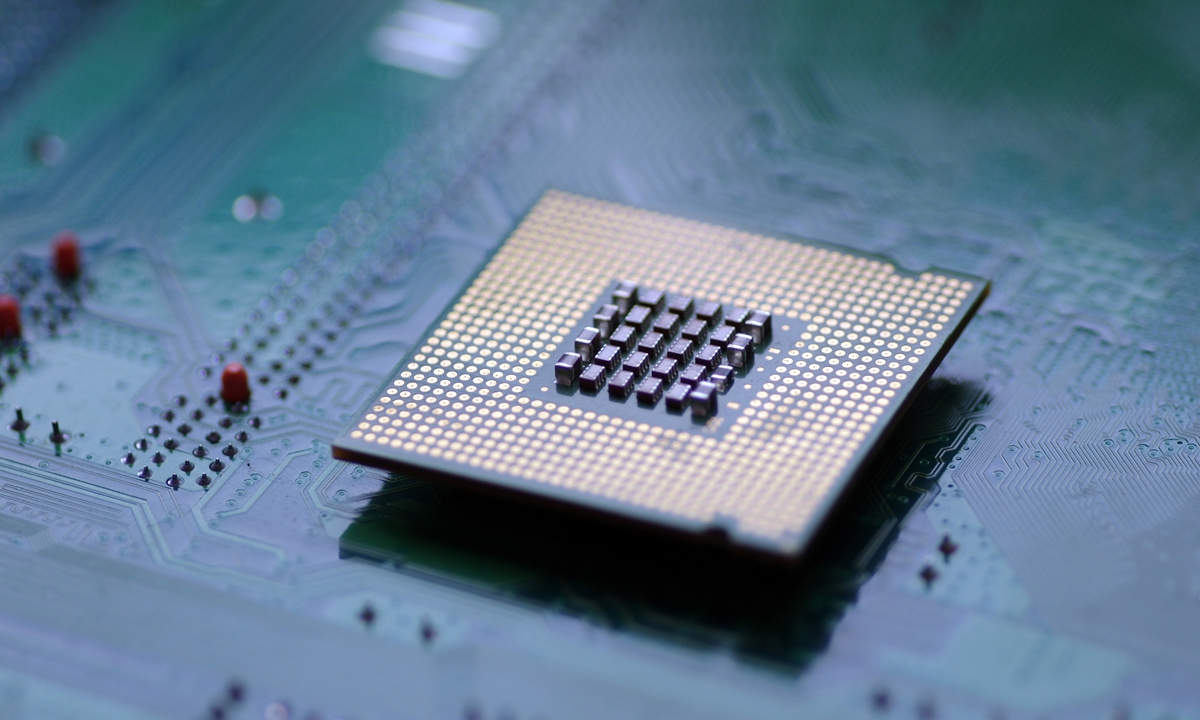Easing Huawei ban won’t shake China’s chip resolve
Source: Global Times Published: 2020/10/29 21:32:41

chip Photo:VCG
While Huawei's smartphone business may be able to get some relief from the US sanctions, China's domestic chip industry may face even more severe challenges ahead.The US Department of Commerce "has been telling companies in recent conversations that while licenses to supply Huawei are handled with a view to denial, this can be overcome if you can demonstrate that your technology does not support 5G," according to a report from the Financial Times.
Recent industry news surrounding licenses to resume shipments to Huawei also seems to have proved the point of the FT report. According to media reports, Intel, AMD, and Samsung Electronics have all received licenses from US authorities to continue supplying certain types of parts like chips and displays to Huawei. The reason why the US is willing to give Huawei a break may be because the American chip industry also needs the big Chinese buyer for huge profits.
The potentially new move may come as favorable development for Huawei's smartphone business, but it may also mean more pressure and squeezed market space for the Chinese chip industry.
It is indeed very frustrating that the Chinese chip industry players are unlikely to break through the Western blockade on China in the high-tech field in the short term. But if Chinese manufacturers continue to rely heavily on imported chip supplies, China's chip industry will always lag behind the international advanced level due to the lack of a sound market environment that can continuously support the research and development work.
So even if the US is likely to ease its curbs on chip supplies to Huawei, this is by no means a reason for Chinese industry players to relax their research and innovation for the whole chip industry chain.
In fact, after the US government banned chip sales to ZTE, many already raised the problem that China's chip supply has been too dependent on imports, and there is a huge gap between China and the West in this regard. Even if China invests heavily in developing and designing chips, the production capability would still pose a big challenge. Also, chips produced domestically may not be able to compete with imported products in terms of cost and performance in the market. So at that time, some industry experts claimed that it is a global division of labor and there is no need for China to spend too much effort on it, and the ZTE case may be just an isolated issue.
China didn't really realize the significance of ending the US' monopolistic supplies of products or technologies until the Trump administration hit Huawei with similar chip sale ban again. Now there is a consensus among Chinese industry players and authorities that China must pursue domestic and diversified supplies of the high-tech products by seeking independent development of the chip industry chain.
The awareness of the urgency that China could pay an even greater price in the future if it relaxes its efforts on research and development now because of costs and short-term economic interests should be highlighted.
Posted in: GT VOICE